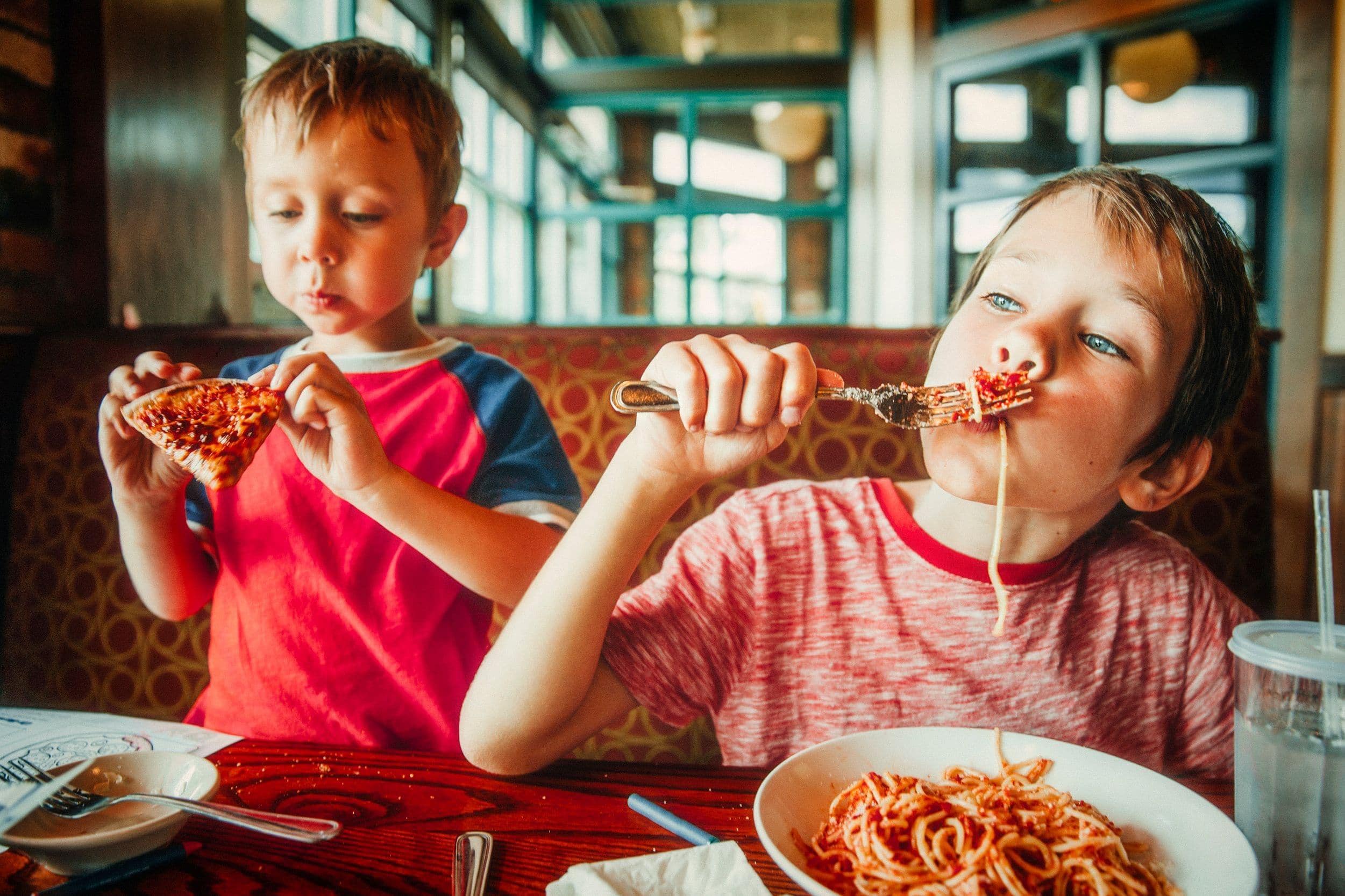How to get children to behave in a restaurant (without resorting to mobile phones)
They're kids, they're going to be restless, but there are a number of tricks you can use to make eating out less of an ordeal, according to Silvia Guijarro, a primary education teacher and collaborator of the Spanish group 'Criar con sentido común' (Raising with respect)
Young children and restaurants are a tricky combination. For kids, they get bored and can't sit still for so long; and for the parents, they often don't know what to do and have to face the not-so-sympathetic stares of other diners; and even for restaurant staff themselves who are sometimes forced to mediate between the two.
The solution is not simple, to the point that one American restaurant, Toccoa Riverside in Georgia, has taken the high road in this controversy and set a surcharge of up to 50 dollars "for adults who are incapable of fulfilling their parental duties" inside its premises. In other words, if your kids are a nuisance, you pay.
A few days ago, a reader asked the food critic of The Washington Post how she could teach her child to eat out without making a fuss, a plan that is becoming increasingly common among families with young children. The expert encouraged the mother to start by taking their child to more informal places, before moving on to sophisticated restaurants where a child's tantrum could attract much more attention.
"Explain the basic rules before you go and, in case a distraction is needed, rely on colouring books or small games. Never rely on screens," the expert recommended. "Restaurants with open kitchens, where you can watch the cooks, offer extra fun, which children often enjoy. And if the child won't listen to reason or is too restless, it's best to go outside," pointed out Tom Sietsema. However, the critic warns parents to be careful what they wish for "because if all this works, a foodie child can cost you dearly".
"When they are babies it is easier to take them out to eat because they sleep for a long time, but as they get older it becomes more complicated because they demand constant activity," said Silvia Guijarro, a primary education teacher and collaborator of the Spanish platform Criar con sentido común (Raising with respect). The expert offers a series of guidelines so going out for lunch or dinner with children does not become a saga.
Choose the right venue
It may seem a truism, but "it's the best advice. It is sad to see that in many places it is still frowned upon to bring your children with you. Yes, sometimes they can be a bit 'annoying', but that's not their fault. They are children and they behave as such. And, of course, there is also a lack of patience and empathy in many adults," said the expert, who advises going to "family friendly" restaurants. "These types of restaurants usually have safe play areas for children, as well as menus adapted to their needs. Whenever possible, it is also advisable to sit outside, as this way the noise dissipates and it is easier to get up from the table."
Respect their needs for hunger and sleep
Although it is sometimes complicated and impossible, it is advisable to take into account their sleep schedules. "If the child has had a bad night, it is possible that at midday he or she will be more irritable, so it would be good to assess whether it is convenient to eat outside or whether it is better to leave it for another day. "The same goes for hunger," Guijarro added. "Adults can keep calm when they are hungry, but children find it difficult to understand that they have to wait to eat and this will make them more nervous. If we are going to be late, we can bring some snacks so that they don't have to wait so long."
Anticipate possible tantrums and don't ignore them
Before leaving, it is advisable to explain the plan and remind them of the rules they must follow. It is also important to listen to them. "You will probably go to the restaurant with other adults and it is normal that you want to chat with them, but you cannot forget that you are also with children and you cannot ignore them," the expert said.
Take everything from home that you might need
The idea is to make the experience as pleasant as possible. They are children and to expect them not to move for three hours is unrealistic. It is not a question of education, the little ones get tired and protest, so it is not a bad idea to take a colouring book with two or three pencils, a sticker book, a doll, cards...
Have realistic expectations
We can't go out to eat with children and expect to have a quiet, perfect evening. "We often expect too much of them and that frustrates us. They need to move, laugh and play," Guijarro said.

